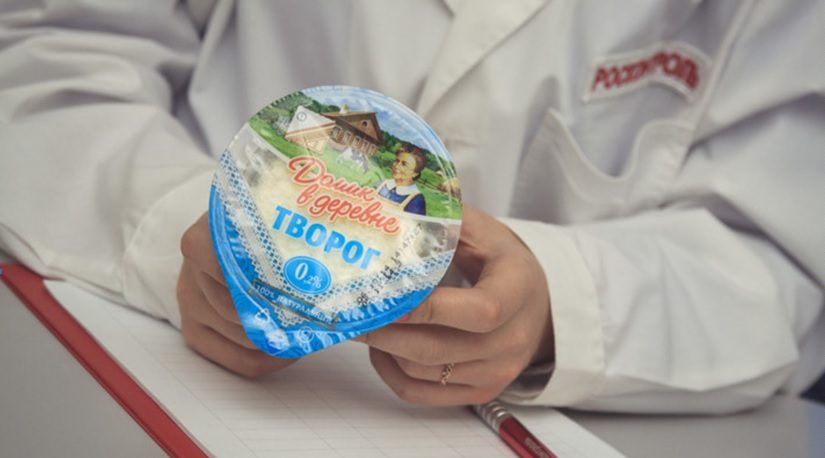Rating of the best correctional schools in Yekaterinburg in 2024
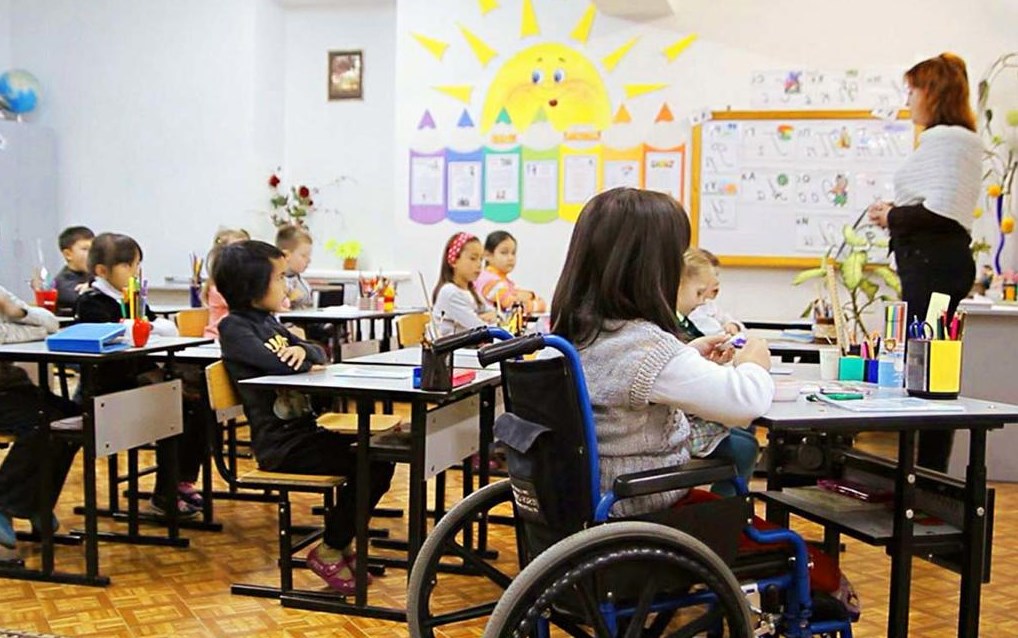
It is difficult for every parent of a “special” child to realize that their baby is not like everyone else. Some of them fall into depression, some are angry, some are shy, but almost all parents of such kids try to hide it from others in all possible ways. After all, "not like everyone else", parents think, will remain a stigma for life. Fortunately, this is not always the case. The state education system provides schools for children with special needs, in which they not only receive education, but also learn to live in society, like quite ordinary children. We will tell you about the best correctional schools in Yekaterinburg below.
Types of correctional schools
To start a conversation about correctional schools in Yekaterinburg, you should first find out which educational institutions have the right to be called that. So, a correctional school is an educational institution that provides education, upbringing and appropriate treatment for children with health problems. In addition, they contribute to their social adaptation and integration into society. They provide for the use of special pedagogy, whose methods are developed in accordance with the abilities and needs of the learners.
It should be noted that in most ordinary educational institutions integrated and correctional classes are open, which children with special needs can also attend. It is only their parents who decide where to study for such students: in a regular or correctional educational institution. In this choice, first of all, the psychological comfort of the person being brought up should be taken into account.
Currently, there are 8 types of correctional schools. Fortunately, they are no longer named after the defect with which they are trained there, i.e. "For the blind" or "for the deaf". Such self-explanatory names were replaced with a digital designation:
Type I - for the deaf.
The peculiarity of education lies in the focus on the development of speech: oral and written. In the educational process, sound amplifying equipment is used, which helps to use the remnants of hearing for teaching. Children are taught to understand the speech of others on an auditory-visual basis (read lips). Teaching is conducted using sign language. The number of students in the class is up to 6 people, which makes it possible to devote a sufficient amount of time to each child.
Type II - for the hearing impaired.
In institutions of this type, children are trained with partial hearing loss and speech underdevelopment, as well as those who have become deaf in preschool or school age, who have retained the ability to speak. The educational process is aimed at developing speech, correcting pronunciation. The number of students in a class varies from 8 to 10 people, depending on the degree of speech underdevelopment.
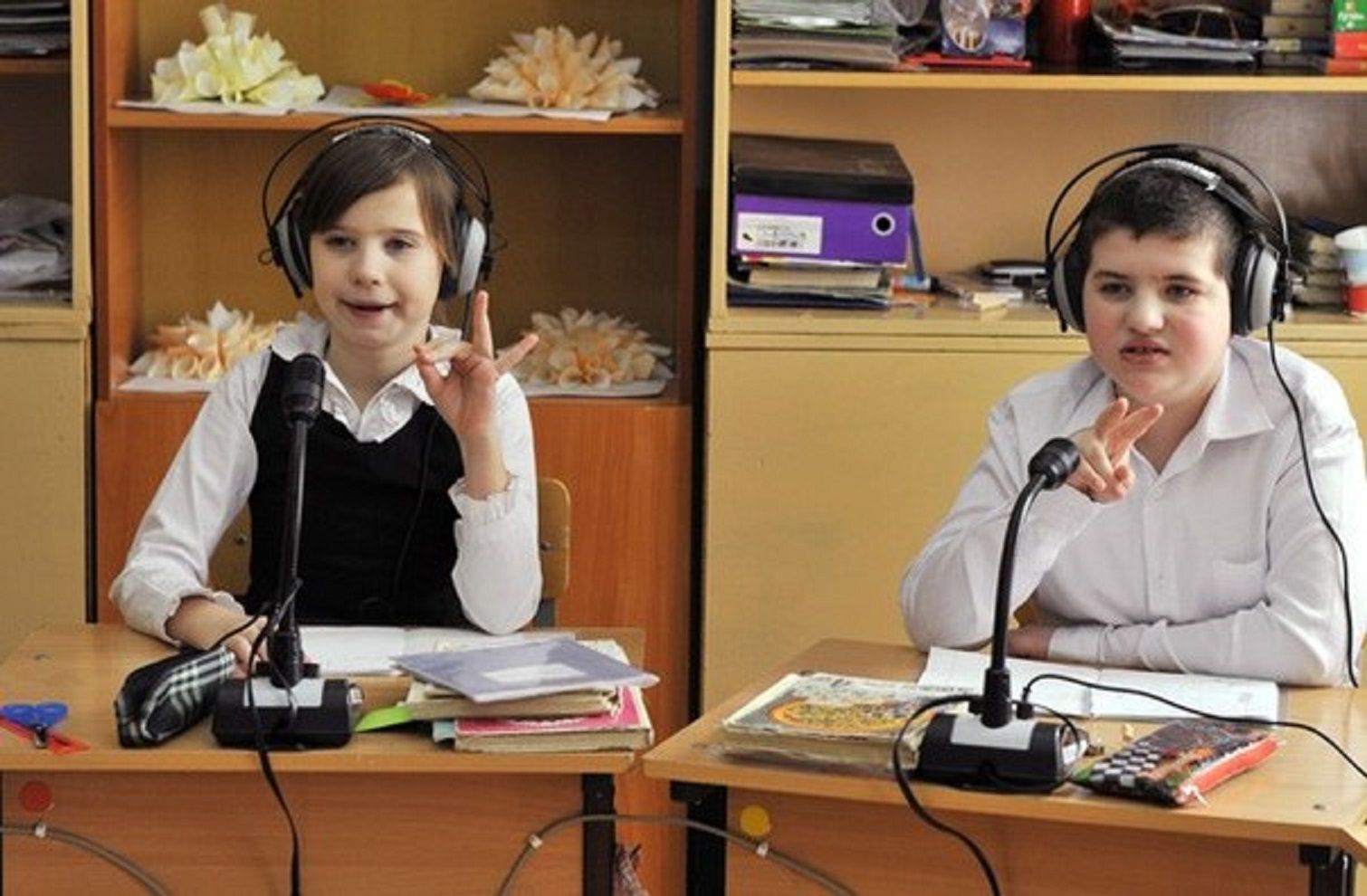
Type III - for the blind.
IV type - for children with residual vision and late blindness.
These two types are often combined in one institution. In addition to the blind, visually impaired and late-blind, they accept students with squint. The number of students in the class is up to 12 people.
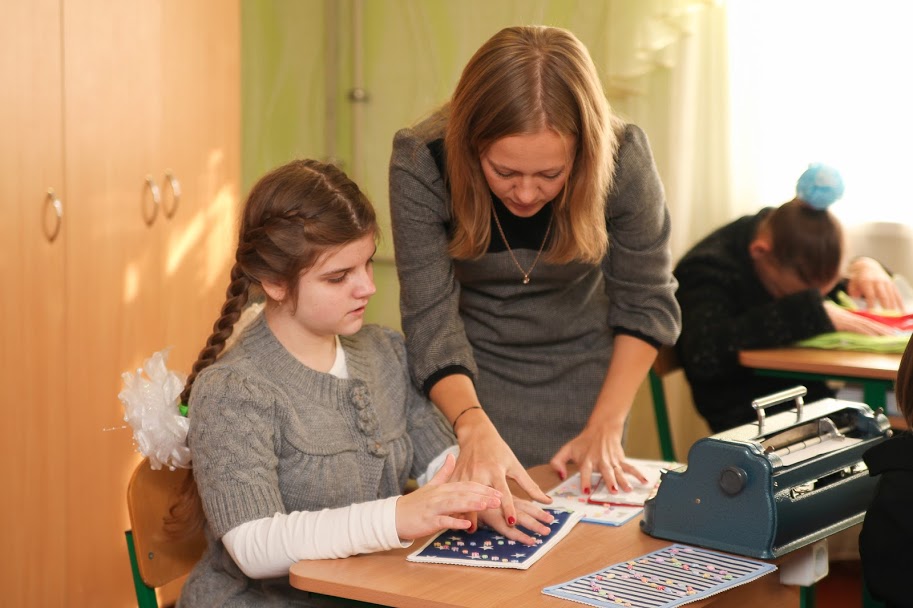
V type - with speech pathologies.
Institutions of this type may have several departments, depending on the severity of speech disorders.Students have the opportunity to transfer to regular schools if the commission determines that the speech impairment has been corrected. Intensive help from speech therapists and teachers is aimed at restoring the normal speech of students.
VI type - with disorders of the musculoskeletal system.
Children with various disorders of the musculoskeletal system are trained here: cerebral palsy, movement disorders of various origins, paralysis, etc. The educational process is aimed at developing the child's cognitive interest, his general development, speech skills, etc. accompanied by a developmental lag in general. Of course, classes aimed at physical activity are mandatory. There are no more than 10 people in the class.
VII type - with mental retardation (PD).
The peculiarity of this type is that the educational process includes only 2 stages: primary and basic general education, in contrast to those named above, which also give a third stage - complete general education. Students of type VII institutions can successfully transfer to regular schools after filling the existing gaps in knowledge and as the deviations are corrected. The occupancy of classes is no more than 12 people.
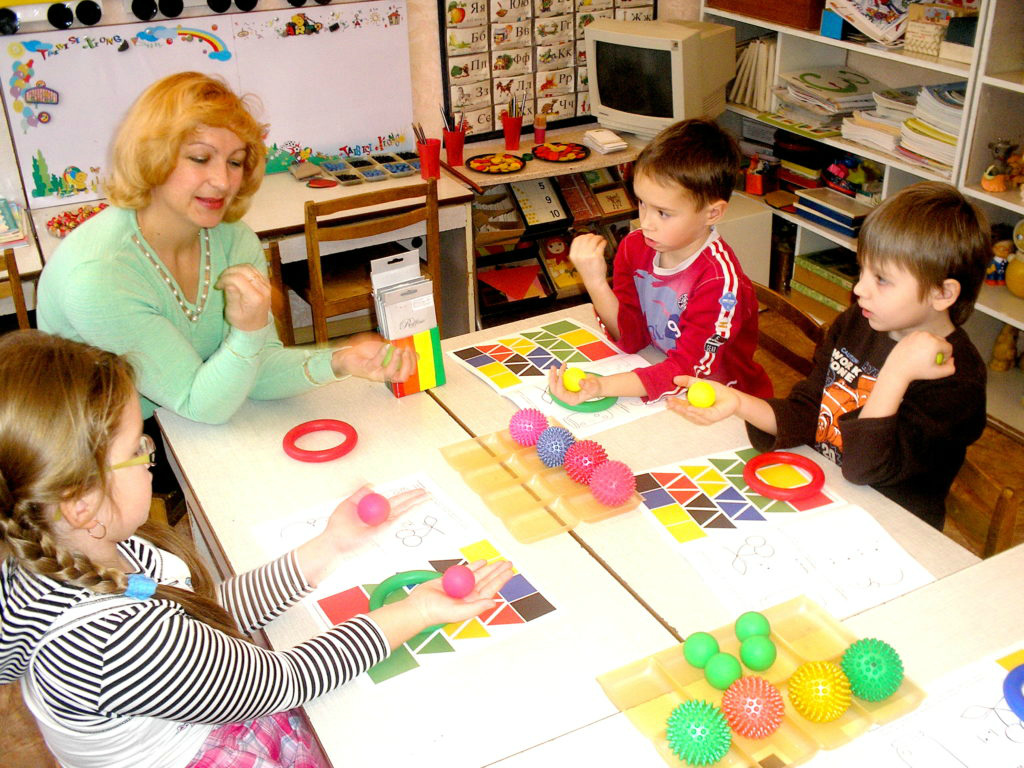
Students who graduated from schools of I-VII types receive state certificates and have the right to continue their education in secondary and higher educational institutions.
VIII type - for children with mental retardation.
These educational institutions are clearly different from those listed above. In them, students do not receive secondary general education. They are enrolled in a special education program for children with intellectual disabilities. First of all, the educational process is aimed at social adaptation. A lot of time is devoted to their vocational training in the presence of the necessary material and technical base in the educational institution. In terms of acquiring knowledge, children are taught to read, count and write. Upon graduation, students receive a corresponding sample certificate. If there is a vocational training class at the school and passing the exam, the student receives a document with the assignment of a qualification category. The occupancy of classes is from 5-6 to 12 people.
Do all “special” children need a special school?
It is important for parents of “special” children to remember that their baby needs their love and attention more than any other. Children with disabilities often feel isolated from other children. Therefore, it is so important for parents to show care and attention to their children, who are not like others, as often as possible. They should feel needed and loved.
The question of studying in a special school is very difficult and painful for most parents. Many are stopped by the thought of what neighbors, colleagues, etc. will say. Because of ignorance, correctional schools seem to us to be closed-type institutions in which unknown things happen. This is absolutely not the case. In them, taking into account the characteristics of each child, all conditions are created that allow pupils to develop, learn and find their place in life, despite the peculiarities of their health.
Each parent must weigh the pros and cons, choosing to leave their baby in a regular school or train in a special one. There are many factors to consider. The most important of them are academic performance, relationships with classmates, psychological state, etc. After all, often children who, according to the results of the psychological, medical and pedagogical commission, were offered to study in a correctional school, study quite successfully in ordinary schools, have excellent contact with peers and do not experience mental discomfort. It is important to remember that the conclusion of the PMPK is only advisory in nature.
In cases where the need for education in a special educational institution is obvious, it is important for parents not to lose heart. They must understand that in a special school all the necessary conditions have been created for their child:
- low occupancy of classes (up to 12 children):
Sufficient time is given to everyone to assimilate the knowledge and acquire the necessary skills.
- appropriate education of teachers:
It is logical that a teacher from an ordinary school without special training will not be able to fully deal with children with disabilities. Therefore, in correctional educational institutions, all teachers have a special education or have undergone appropriate retraining.
- specially designed training programs:
Students are trained in programs that take into account their capabilities and abilities. In addition, the emphasis is on vocational training, which makes it easier for graduates with a profession to “get on their feet” in adulthood.
- no stigma “not like everyone else”.
Children surrounded by others, just as “special”, undergo social adaptation better. They are not mocked, no one focuses on their features. Thanks to a psychologically comfortable environment, they do not withdraw into themselves, they strive for learning and development.
Parents need to visit a special school before sending their child to a special school. After all, no reviews can fully convey the atmosphere of the institution. Only through personal communication with teachers can you understand how they relate to their students. A visit to the school will allow you to evaluate the material and technical equipment of the classes, the order and discipline, the coherence of the work of the teaching staff.
Correctional schools in Yekaterinburg
In Yekaterinburg, 12 special correctional boarding schools (SO SHI) are currently providing educational services. Unfortunately, not every institution has an official website where you can get acquainted with its work. We offer you all the information we have collected about these institutions.
№ 89 (11)
Address: st. Danilovsky, 2d
Phone: ☎ +7 343 352-22-19
Website: http://internat11.lbihost.ru
Working hours: Mon-Fri: 09: 00-18: 00; Sat, Sun - day off.
The school belongs to type I. In addition to the deaf and hard of hearing, children with severe speech disorders, as well as deaf and hard of hearing with mental retardation are also trained. For all groups of students, appropriate adapted programs have been developed.
All levels of education are implemented in an educational institution: primary, basic and secondary.
Additional programs are being implemented: Fine Art Studio, "Clay Toy", "Choreography", "Tennis".
- classes start at 09:00;
- strong teaching staff;
- children with speech disorders are accepted.
- inconvenient location.
No. 139 (Center "Echo")
Address: st. Belinsky, 163
Phone: ☎ +7 343 257-37-68
Website: http://internat126.ru
Working hours: Mon-Fri: 08: 00-17: 00; Sat, Sun - day off.
The educational institution belongs to type I. It implements all three stages, at the end of which a certificate of secondary general education is issued.
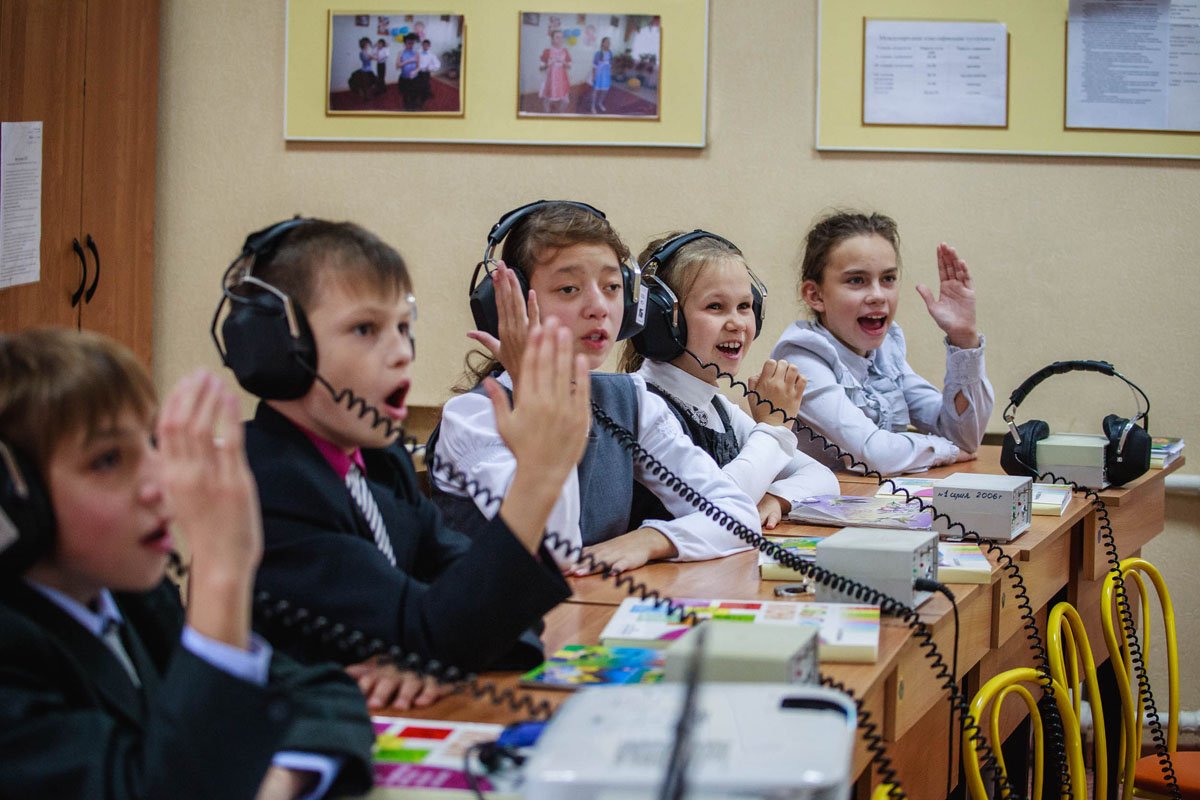
- various technical, computer, telecommunication means are used in the educational process;
- children are taught computer graphics, which allows them to find work in this field in the future;
- a large selection of additional programs.
- not found.
№ 126 (13)
Address: st. Republican, 1
Phone: ☎ +7 343 330-87-00
Website: http://internat126.ru
Working hours: Mon-Fri: 08: 00-17: 00; Sat, Sun - day off.
The nearest stops: Victory Park (570 m), st. metro Uralmash (3.4 km).
The institution belongs to the II type and provides primary and general education for the hearing impaired and the late deaf.
In addition to the main subjects, students have the opportunity to master additional programs in fine arts, modeling, sports, arts and crafts, theater and music.
- teachers and educators treat pupils with understanding;
- a large selection of additional educational programs.
- located far from public transport stops.
№56 (№6)
Address: st. Darwin, 4
Phone: ☎ +7 343 263-48-61
Website: www.shkola-boarding6.rf
Working hours: Mon-Fri: 08: 00-17: 00; Sat, Sun - day off.
The nearest stops: metro - Botanicheskaya (about 3 km), bus - st. Darwin.
The school belongs to the V type - for children with severe speech disorders. Those who have OHR I, II, III levels are accepted for training.
The educational institution implements the initial level of education. The term of study is 4-5 years.Correctional courses "Logorithmics", "Development of speech", "Pronunciation", etc. are added to the main academic subjects.
Additional programs aimed at the creative and physical development of students: "Merry palette", "Soft toys and souvenirs", "exercise therapy".
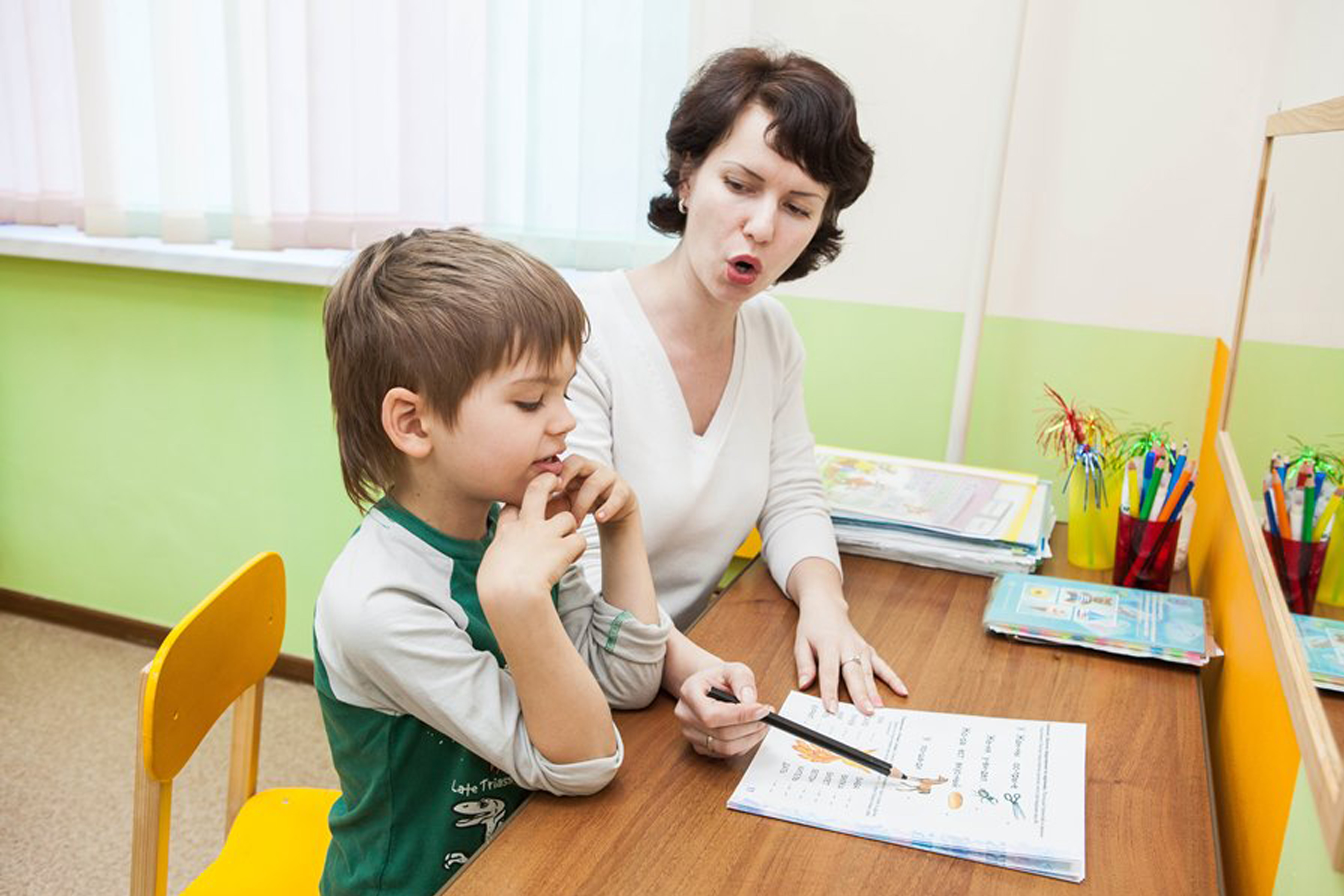
- teachers do their best to help students with speech impairments in the future to get into a regular school;
- a noticeable positive result is observed in almost all.
- the school building needs renovation;
- inconvenient parking.
№ 17
Address: st. Krasnokamskaya, 36
Phone: ☎ +7 343 234-34-53, 234-34-62
Working hours: Mon-Fri: 09: 00-17: 00; Sat, Sun - day off.
The school belongs to the VI type - for children with musculoskeletal disorders. In this institution, it is possible to receive a complete general education.
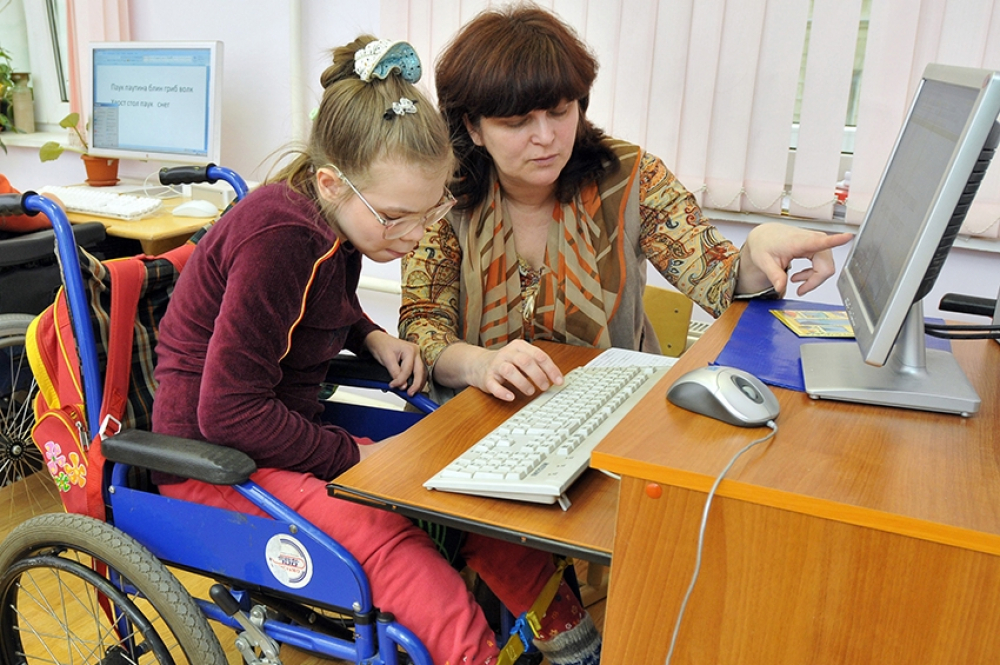
- nearby is the "Children's Center", where children attend physiotherapy;
- classes are equipped with the necessary equipment for teaching children with cerebral palsy;
- are accepted for training with autists.
- inconvenient location.
№ 73
Address: st. Tatishcheva, 78
Phone: ☎ +7 343 246-48-35
Working hours: Mon-Fri: 08: 30-17: 00; Sat: 08: 30-14: 00, Sun - day off.
Address: st. Gottwald, 19a
Phone: ☎ +7 343 245-97-05
Working hours: Mon-Fri: 08: 30-17: 00; Sat: 08: 30-14: 00, Sun - day off.
The school has 2 branches: on Tatishchev and Gottwald streets. On Tatishchev, the school belongs to the VII type, on Gottwald - to the VIII.
- strong specialists: after training with them, even children with difficult diagnoses experience improvements.
- not found.
№ 18
Address: st. Uprising, 34
Phone: ☎ +7 343 325-58-50
Website: http://ekb-school18.ucoz.ru
Working hours: Mon-Fri: 08: 00-17: 00; Sat, Sun - day off.
Nearest stops: metro - Kosmonavtov avenue, bus - st. Stakhanovskaya.
This educational institution belongs to the VII type - for children with mental retardation.
It provides primary and basic general education (grades 1-9). Each block lasts 5 years, i.e. in primary education 1 grade is duplicated. A five-day training week was organized. Possible round-the-clock stay. Additional educational programs are being implemented: "Little Miracles" - a circle of applied arts, "Mini-football", "Pop dance", "Creative workshop", "Music and singing".
The school has 52 classrooms, an art room, a computer class. The offices of psychologists, speech therapists, and a medical office are separately allocated. For vocational training, a carpentry and sewing workshop, a cooking room are provided. A sports hall is equipped. There is a dining room for 200 seats, sleeping buildings.
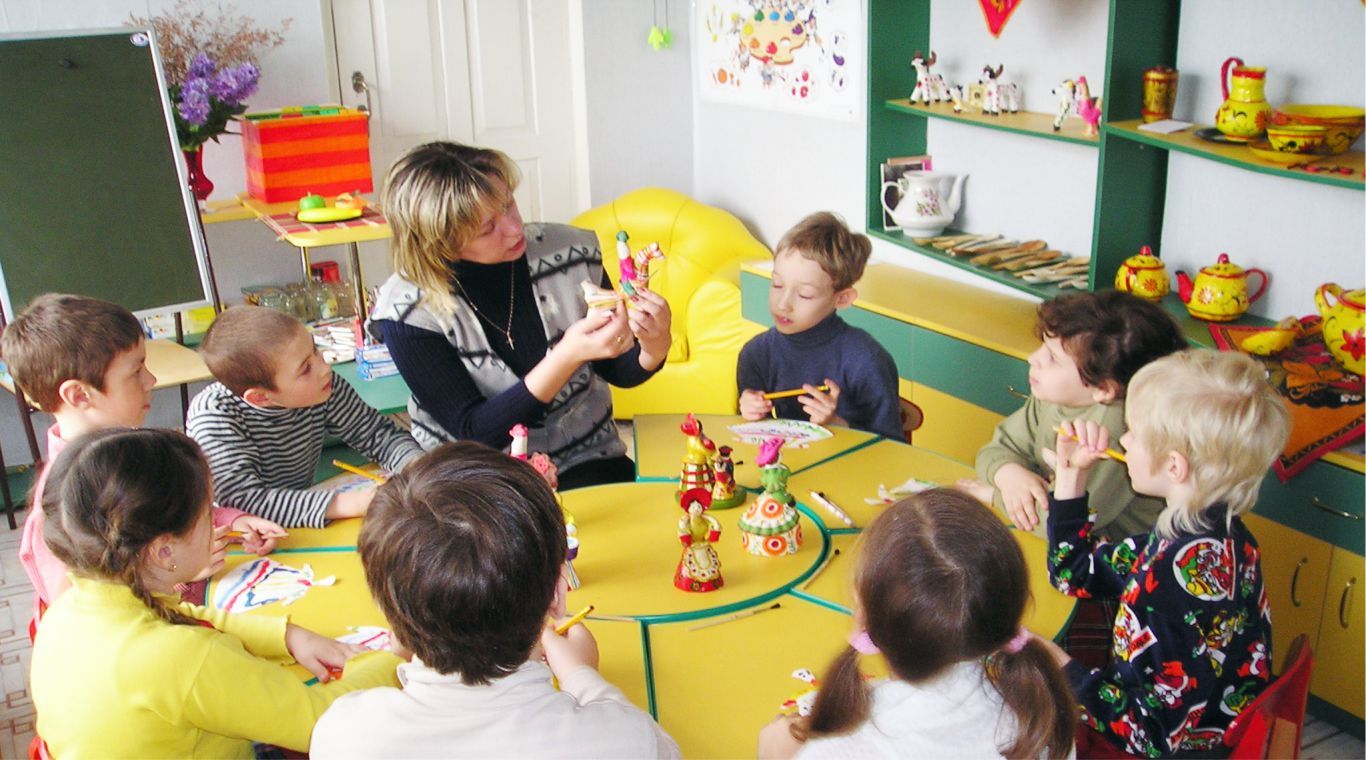
- good material and technical equipment of the school;
- strong teachers - even complex subjects are presented in an accessible and understandable way;
- located close to bus stops.
- not found.
№ 172
Address: Sedova Ave., 54
Phone: ☎ +7 343 366-49-24
Website: http://school2-ekb.ru
Working hours: Mon-Fri: 08: 00-18: 00; Sat, Sun - day off.
Educational institution of the VIII type for students with mental retardation. In addition to the necessary knowledge of reading, writing and mathematics, students acquire skills in labor disciplines: sewing, carpentry and plumbing.
- teachers take into account the characteristics of the character and the level of development of the intellect of each child;
- cozy atmosphere.
- not found.
№ 123 (3)
Address: educational buildings - st. S. Kovalevskaya, 10 and st. Krasin, 37; orphanage for mentally retarded children - st. Lyapustina, 4
Phone: ☎ +7 343 374-35-03
Website: http://123school.ru
Working hours: Mon-Fri: 08: 00-17: 00; Sat, Sun - day off
The institution belongs to the VIII type and implements primary and general education for children with mental retardation. In addition to the main subjects, students have access to additional education in the following areas: physical culture and sports, artistic and aesthetic, social and pedagogical.
- accept children with autism for education.
- small school building.
№ 118 (7)
Address: st. Shchorsa, 107
Phone: ☎ +7 343 269-18-00
Website: https://skosh7.uralschool.ru
Working hours: Mon-Fri: 08: 00-18: 00; Sat, Sun - day off.
Educational institution of the VIII type. The school implements primary and basic general education for children with mild, medium and severe mental retardation.It is equipped with training workshops, in which students learn the basics of professions: carpenter, seamstress, painter and plasterer.
Organized two hot meals a day for all students.
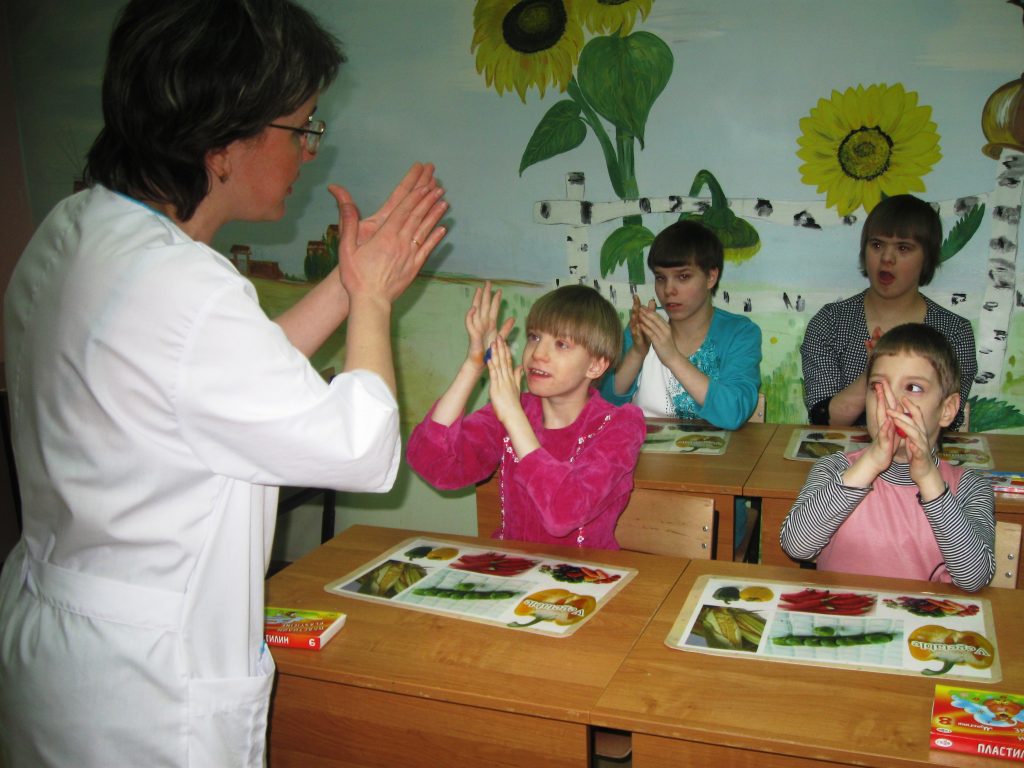
- great attention is paid to sports and physical development of children;
- a large number of circles and additional activities that contribute to the creative and artistic and aesthetic development of pupils.
- old building requiring renovation.
№ 111
Address: st. Baku Commissars, 50a
Phone: ☎ +7 343 325-26-59
Working hours: Mon-Fri: 08: 30-17: 00; Sat: 08: 30-15: 00, Sun - day off.
The school belongs to the VIII type - for mentally retarded children.
- home education is possible;
- children with various combinations of defects are accepted for training (intellectual underdevelopment with speech disorders, with disorders of the musculoskeletal system or vision).
- good material and technical equipment of the school.
- not found.
Summarize. There are 12 special schools in Yekaterinburg. Of these, type I - no. 89 and 139 (1), type II - no. 126 (13), type V - no. 56, type VI - no. 17, type VII - no. 18 and 73 (on Tatishcheva), type VIII - no. 172, 123 (3), 118, 111, 73 (on Gottwald). As you can see, there are no type III and IV schools in the city - for the blind and children with residual vision. There is one school for children with speech disorders and problems of the musculoskeletal system. Most of the institutions (5) are for children with intellectual disabilities.
new entries
Categories
Useful
Popular articles
-

Top rating of the best and inexpensive scooters up to 50 cubic meters in 2024
Views: 97661 -

Rating of the best materials for noise insulation for an apartment in 2024
Views: 95022 -

Rating of cheap analogues of expensive medicines for flu and colds for 2024
Views: 91751 -

The best men's running shoes in 2024
Views: 87681 -

Top ranking of the best smartwatches 2024 - price-quality
Views: 85091 -

Best Complex Vitamins in 2024
Views: 84801 -

The best dye for gray hair - 2024 top ranking
Views: 82406 -

Rating of the best wood paints for interior use in 2024
Views: 77202 -

Ranking of the best action cameras from China in 2024
Views: 75269 -

Rating of the best spinning reels in 2024
Views: 74827 -

The most effective calcium supplements for adults and children in 2024
Views: 72462 -

Top rating of the best means for male potency in 2024 with a description
Views: 68296
